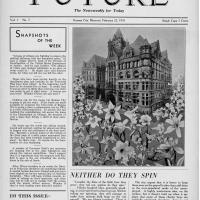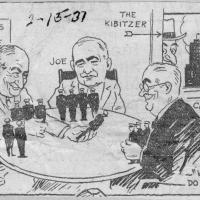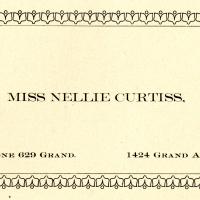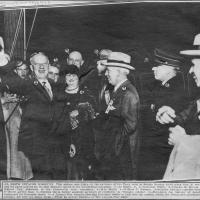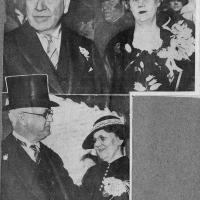Machine Politics, Organized Crime, and Reform
For nearly a decade and a half between 1925 and 1939, political boss Thomas J. Pendergast (or simply "Boss Tom"), an unelected dealmaker and leader of the local "goat" Democratic faction, consolidated control of Kansas City's machine politics and ruled its government and criminal underworld with impunity. Prior to those years, Boss Tom and his elder brother, James F. Pendergast, who died in 1911, had long vied for control with other aspiring bosses. Chief among the rivals was Joseph B. Shannon, leader of the "rabbit" faction of the Democratic party. Boss Tom, the namesake of this website, overshadowed Kansas City and exerted influence on most of the best and worst aspects of its history throughout his reign. As reform efforts swept in and the Pendergast Years faded away, so did much of the city's Jazz Age identity.
Featured Article
One of the defining aspects of “Boss” Thomas J. Pendergast’s “machine” politics was its approach to African American voters. During the early 20th century, at a time when black people were routinely excluded from the vote by Democratic regimes in most of the former slave South, Pendergast’s Democratic organization in Kansas City succeeded in part by attracting considerable black support. While such support was not unique to Kansas City—black Missourians never lost the vote in the same way or degree as their counterparts farther South—historians often point to the city as an example of early black political realignment toward a Northern Democratic Party based in urban, industrial centers and at increasing odds with its Southern wing over the issue of civil rights.




